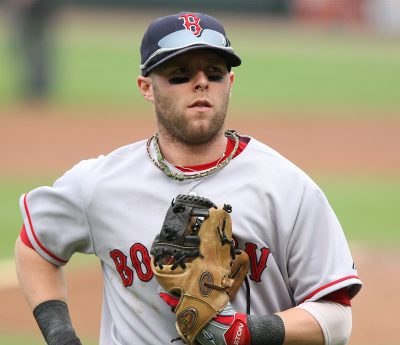
This past weekend, the Boston Red Sox and Baltimore Orioles made headlines because of the controversial pitch thrown by Sox reliever Matt Barnes. Barnes’ pitch narrowly missed the head of O’s infielder Manny Machado. The incident stemmed from Machado’s hard slide into second base days earlier, cleating Red Sox star Dustin Pedroia in the process.
It seems that every time incidents like these occur in baseball, a debate heats up again about self-policing in the game. For years, baseball has been enforced by pitchers who want to keep the game on an even keel. If a team thinks that one of their players has been wronged by the opposing team more than normal, pitchers then decide to retaliate. We’ve seen countless examples of this type of self-discipline within baseball, but many want to see it taken out of the sport.
Now, I understand what Matt Barnes did was not OK. Speculation exists among sports journalists in Boston that Barnes was likely trying to hit Machado in the midsection, but the ball got away from him. However, if Barnes was throwing at Machado’s head, then his four-game suspension is more than justified. Throwing at a player’s head, knee or other spots that can cause serious long-term injuries is not acceptable.
That does not mean that retaliation is something that should be taken out of the game. Had Machado been hit in the back the day after the cleating, no one would have said anything. It would have been just retribution, but because the beaning happened days later, and the pitch came in high, the criticism against Barnes – and John Farrell, who assumedly gave the order to his pitcher – is reasonable.
Baseball has been struggling between making the game more enjoyable for fans and making it safer for its players. This dichotomy has led to rules prohibiting former parts of the game like barreling into the catcher, blocking the plate and taking out the second baseman during an attempted double play. Whether or not you love or hate the implementations of these bans, they are done to protect baseball’s brightest stars.
But these bans have also fueled the narrative that baseball has gotten soft. Instead of having hard slides into second base like Chase Utley in the 2015 National League Division Series, Major League Baseball has forced players to only direct their slide toward the base — instead of to the right or left of the bag. Now we see players sticking out their arms in order to prove that their slide was legal. Yes, the bans have kept players safer, but we can debate whether dulling down the game has been a worthwhile trade.
What cannot be debated is the value that self-policing has on baseball. Pitchers like John Lackey, Pedro Martínez and other tough aces treat the game as one of respect. When they feel that they or their teammates have been disrespected by a player, these old school pitchers let the opposing team know it will not be tolerated. This commitment to keeping baseball a respectable game actually helps clean it up. While a player may not be thinking of consequences like how much they will have to pay in fines after a cheap slide, they will be more than aware of the likelihood of getting a 95 mph fastball to the back.
Self-policing in baseball also keeps the intensity of the game at a high level. Without passion, we will risk stripping baseball of something that attracted us all to it. With pitchers able to throw at players who have failed to respect the unwritten rules of the game, we create storylines of animosity between teams. This passion spills over into popularity. Look at how many people watch Red Sox-Yankees games as opposed to Rockies-Twins.
Eliminating a pitcher’s ability to defend his teammates on the mound would leave baseball as a game without heart, tenacity and a fire that makes sports fans pay attention all the time. While sports such as golf and tennis are enjoyable to watch and have no semblance of contact or physicality in them, they are not worshiped like baseball. For the most part, people pay attention to them during important tournaments like the Masters or Wimbledon. However, baseball’s following is far and wide. People tune in to much more than just the World Series and Wild Card games. Fans in places like St. Louis, where baseball is almost everything, are glued to their televisions from April through October. This year’s World Baseball Classic drew over 3.1 million views during its championship contest.
Throughout its entire history, baseball has been enforced by pitchers. That self-policing has kept the game respectful, has brought passion and intensity to those matchups we look forward to and those we don’t expect, and continues to make most fans, young and old, watching and engaged in the sport. Without it, baseball just isn’t baseball.

